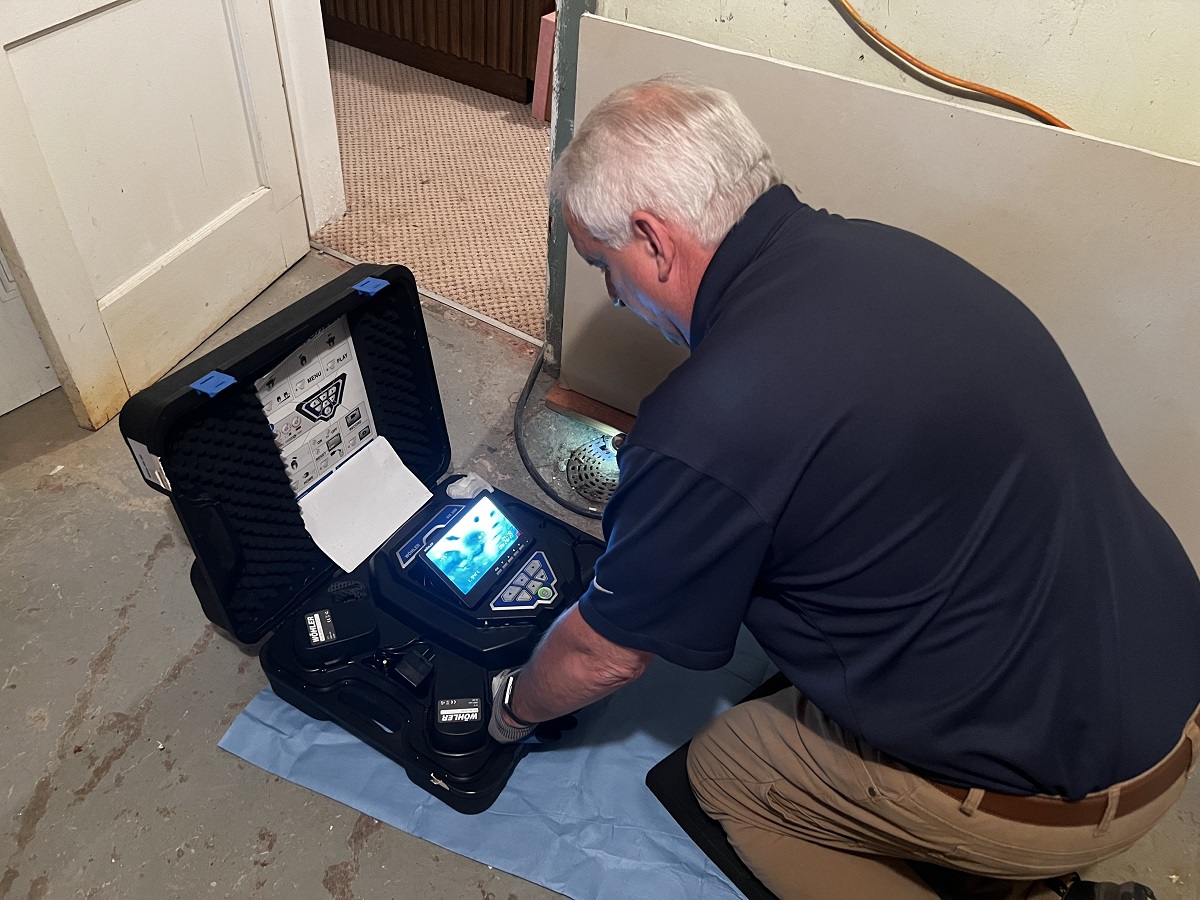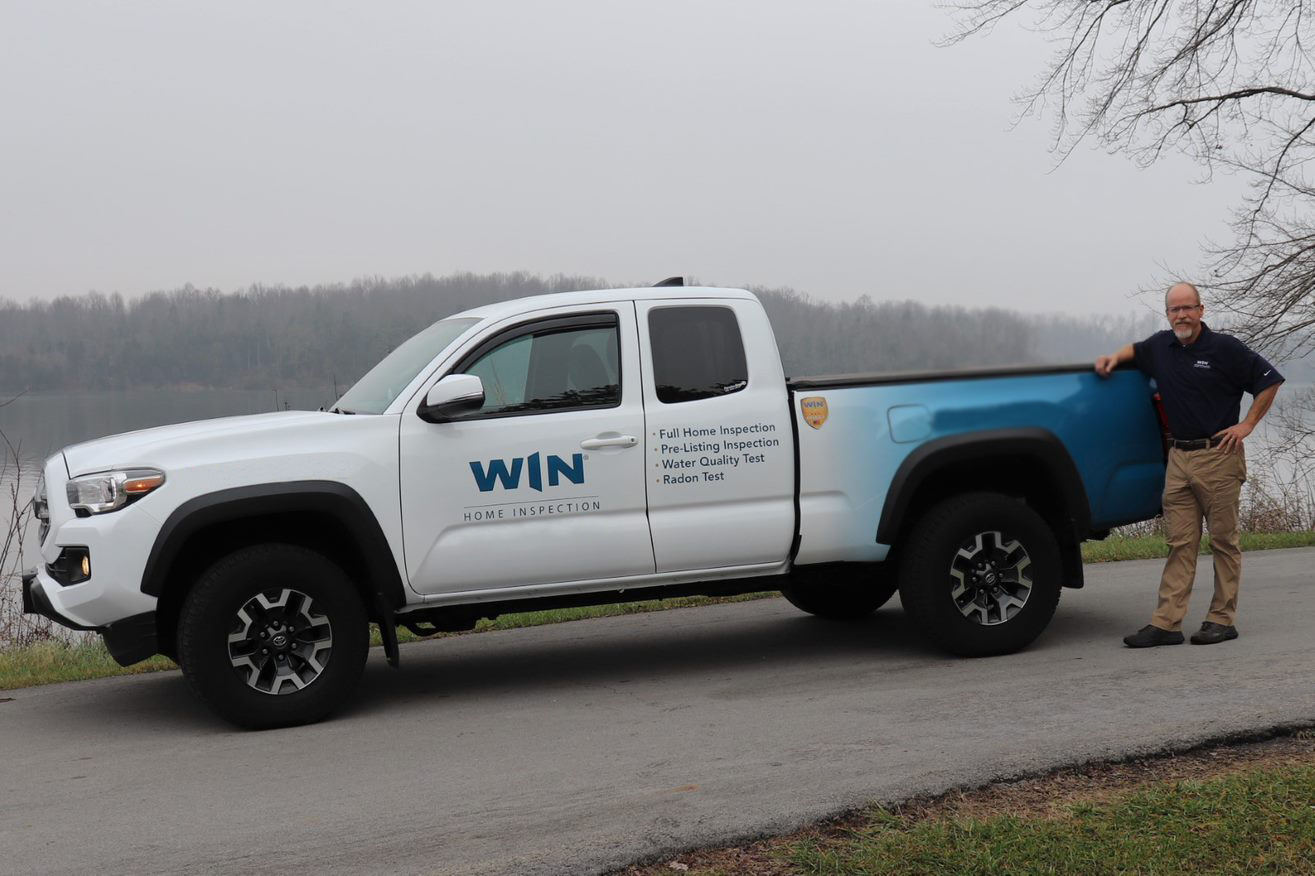Ready to Embark on an Exciting Journey with WIN?
Take the first step toward personal and financial freedom by filling out the interest form. One of our franchise advocates will be in touch with you soon!

For entrepreneurs looking to kickstart their business ownership journeys with minimal investment, startup costs may give them a bit of sticker shock, but they are necessary to ensure you are equipped with everything you need for success. Luckily, home inspection requires no inventory and no storefront – significantly reducing your startup costs compared to other industries.
Instead, your startup costs as a home inspection business owner mostly involve training, marketing, and operations. For many entrepreneurs, investing more at the beginning of the business’s life is a strategic move because they’re able to get all the necessary tools and equipment they need, can blitz the market upon launch, and see a faster return on investment (ROI). For others, they’d rather invest gradually over time and are not as concerned about growing or expanding their business quickly. If you’re an entrepreneur who’s ready to take charge and be a major player in your market, then starting a franchise may be the right business opportunity for you.
Before you decide, let’s dive into the nitty gritty of what home inspection business costs you should expect, so you can truly evaluate your options and make the business move that’s right for you.

The real estate market continues to grow year over year because of numerous factors including an increasing population, rise in new construction neighborhoods, families moving in and out of states, and high rent rates. Moreover, home inspection is a necessary requirement for many insurance companies and during a real estate transaction in some states, making an inspector’s role in real estate consistently relevant.
On average, home inspectors in the U.S. make an annual salary of $62,596. However, the potential salary growth a home inspector can see is exponential as the U.S. home inspection market is expected to hit $25 billion by 2029, growing at a compound growth rate of 4.7% per year. This further solidifies the potential for financial success as a home inspection business owner.
Typically, the cost of starting your home inspection business could range from $25,000 to $100,000+ and can be financed in various ways, including retirement funds, home equity loans and personal loans. Launching your business as a sole proprietor may cost less out of the gate, but it could leave you high and dry without the built-in brand awareness and marketing tools necessary to generate revenue and offset the costs you may have initially invested. To accelerate growth and build a thriving business, you will need to invest in robust marketing strategies.
Building a strong foundation for your business before you begin advertising and offering home inspection services is essential for long-term success. Overspending out the door will leave you with a tight budget that prevents you from investing in advertising and bringing in business to offset those costs.
Most of your initial home inspection business costs as a sole proprietor should lie in training, marketing, and business infrastructure, like vehicles and inspection tools. If you choose to join a franchise, however, investment costs shift accordingly with the value you receive. In-house support, technical and marketing training, and brand awareness out the door will all be incorporated in your initial startup costs, so you won’t have to worry about these items and more when starting your business. Marketing costs are foundational for your business growth, but they shouldn’t be your most expensive endeavor during these first few months. Instead, marketing should generate a high return on investment while spreading brand awareness – bringing in enough profit to offset your initial investment costs.
Pro-Tip: Partnering with a proven franchise system can help you launch your business with a lot less effort and a lot more security. Although start-up costs can vary among home inspection franchises, pick the franchise that can keep your start-up cost low while providing comprehensive support for training, marketing, operations, and other necessities.

One of the biggest attractions of home inspection is the limited need for inventory because the inspection report you provide buyers, sellers, agents and homeowners is the product. However, inspection tools and technologies are a key component to producing a robust report, making it essential that you invest in reliable and state-of-the-art tools. Plus, inspection tools are a one-time cost that generates recurring revenue, so you can break even with just a few inspections!
Below are some essential items you’ll need to put your best foot forward out in the field and how much you should budget for them.
There are other items you’ll need to get, and they cost anywhere from $5-$50 each – safety glasses, compass, tape measure, utility knife, screwdriver set, flexible flashlight, basic electrical tester, smoke pen and telescoping mirror. Some home inspectors attach a wireless camera to a telescoping pole called a spectroscope, which aids in inspecting roofs and chimneys. You’ll also want an assortment of hand tools including screwdrivers and pliers.
Below are some of the high-tech tools and equipment that are a great investment to help you offer more value to your services.
Pro-Tip: Some of the above items are optional, and needed for ancillary services you may want to offer. Before buying the equipment, make sure you have received proper training and certifications.

Home inspection is a home-based business, meaning it does not require a storefront or commercial office space to get the job done. You are more than welcome to use your home office to write inspection reports and conduct essential business transactions, keeping the start-up cost low. Instead, you will spend substantial time in the field conducting inspections or meeting clients and agents. The essential equipment you’ll need to operate your business includes a laptop computer, tablet, colored printer, office supplies, and comfortable chair and table.
Other critical items you’ll need include:
A well-thought-out and strategic marketing plan for launch is critical to long-term success. Print marketing collateral should be a top priority when launching as they are a low-cost, high-margin tool for increasing brand awareness in your community. Professional networking is also important to your marketing efforts. Other than the cost of an occasional business lunch, networking with peers and other industry professionals only requires an investment in time.
Additionally, you should invest in a website, social media and eventually, paid marketing. A franchisor can do this all for you, or you can choose a vendor who will provide you with the most value for your money. All of this could cost you $0 to $1,000+ if you are going to do this on your own. With a franchise, these startup costs typically cost much less while saving you precious time in building your local brand effectively.
Pro-Tip: Beware of vendors who create cookie-cutter marketing programs that are identical for you and your competitors. The result is ineffective marketing at best, and at worst, turning off for real estate agents and clients who get jaded with identical emails and flyers from multiple home inspectors.
Legally, you’ll need a state business license to start your business. This is essential for tax purposes as you will be working as a commercial entity in the U.S. Most U.S. state business licenses range from $50-$550 at the time of registration. FindLaw provides a good overview of licensing, tax ID numbers and related legal matters.
Home inspectors often form limited liability corporations (LLCs) to protect their personal assets. You also have the option to consider an S-Corp or on rare occasions, a C-Corp. Any businessperson operating as a sole proprietor is one lawsuit away from devastating financial consequences. An LLC or another entity structure may provide you with legal protection.
You will also need agreements that your customers will sign before you provide services to protect you from liability. The inspection agreements should reflect your state’s laws as well as pertinent industry regulations. An inspection agreement should also exist for every ancillary service you provide.
Pro-Tip: Trade associations can provide you with canned agreements, which may not be a bad start. However, you must ensure your agreement is updated to incorporate changes in state laws over time. Additionally, a canned agreement from a trade association may not have sufficient protection for you but may do just the most basic that is required to have the agreement in place.
Most states require home inspection businesses to carry the appropriate insurance. Finding the right insurance partner is crucial for your long-term protection and peace of mind. A franchise system typically enjoys volume discounts on pricing, and insurance forms are generally custom-tailored to make them more effective for you.
Types of Insurance for Home Inspectors:
General Liability Insurance – Almost all businesses benefit from business liability insurance. Although uncommon, home inspectors do sometimes cause accidents. For example, a ladder could go through a window, or a tool could fall off the roof and damage the home. Also, it’s important that your truck, car or SUV be properly insured as a business vehicle. The cost for General Liability Insurance typically ranges from $400 to $1,000 annually.
Errors and Omissions (E&O) insurance – Home inspectors also need E&O insurance. This is a specialized type of business liability insurance. It covers losses related to mistakes made by home inspectors. For example, a client might sue if an inspection fails to reveal a problem foundation. This insurance typically ranges between $1,000 to $2,500 in cost per year.
Read this article to know more: Home Inspector Insurance Cost: What You Need to Know
There are no shortcuts to success. You will need extensive, rigorous and ongoing training to succeed in the home inspection industry and ensure you are protecting the health and safety of your community members. Most states require that you become licensed. States that do not currently have licensing are moving in that direction.
Here are the three options for you to consider for training:
A franchise system typically includes training as part of their overall support model and fee structure. And franchise training is instructor-led, structured, and often tailored to your needs.
An online school will charge you by the class, and it can become quite expensive and time-consuming. Trade associations have varying pricing and membership models. Moreover, trade associations and online schools offer mostly self-study content, which should be supplemental to an effective training program, rather than being the training program.
Pro-Tip: With a franchise system like WIN, you receive comprehensive, in-house training that will ensure that not only are you ready to take and pass the home inspection exam, but also begin conducting home inspections. Unlike trade associations and online schools, with a franchise, you get ongoing coaching and mentorship, and can always seek out support from within the franchise to help you in your growth and development. Moreover, a franchise like WIN that is vested in your success can offer you additional ongoing training and certifications at no additional cost, which can save you a lot of money while helping you stay up to date with trends and skills that can help you grow your business.

With a home inspection business, an SUV, van or truck is typically sufficient for holding your equipment and traveling to and from inspections. In this case, many entrepreneurs can transfer their already owned vehicle from personal to business use. The costs associated with fuel, insurance and repairs are ongoing. Fortunately, these costs are offset to a degree by the business mileage deduction. The IRS allows this deduction when you use your vehicle for business. In 2023, that rate is 65.5 cents per mile. This deduction is one of the perks of a home inspection business – virtually every trip out to a home has a legitimate business purpose!
Like any other business, a home inspection business requires you to invest in your success, including an investment of time, energy, and financial resources. Some will say you can start a home inspection business with a screwdriver, hammer, and a one-time cookie-cutter online training class. However, there are no shortcuts to success. Invest in your future and your family’s future with a sound strategy and a full understanding of what it takes to be successful as the new owner of a home inspection business.
A proven franchise can offer you a one-stop solution to help you succeed. You can go the independent route but start with your eyes wide open. Otherwise, it can quickly become the syndrome of ‘death by a thousand cuts,’ where you end up dealing with surprises and unintended costs.
To learn more about creating your very own thriving home inspection business, we encourage you to contact our franchise partnerships team at WIN Home Inspection. WIN offers an affordable franchise model with exceptional support. No wonder, WIN is the nation’s #1 and fastest-growing home inspection franchise.
Please call us at (800) 967-8127 or fill this contact form. We’d be delighted to provide you with more information on the cost of starting your own home inspection business with WIN as well as answer any other questions you may have.